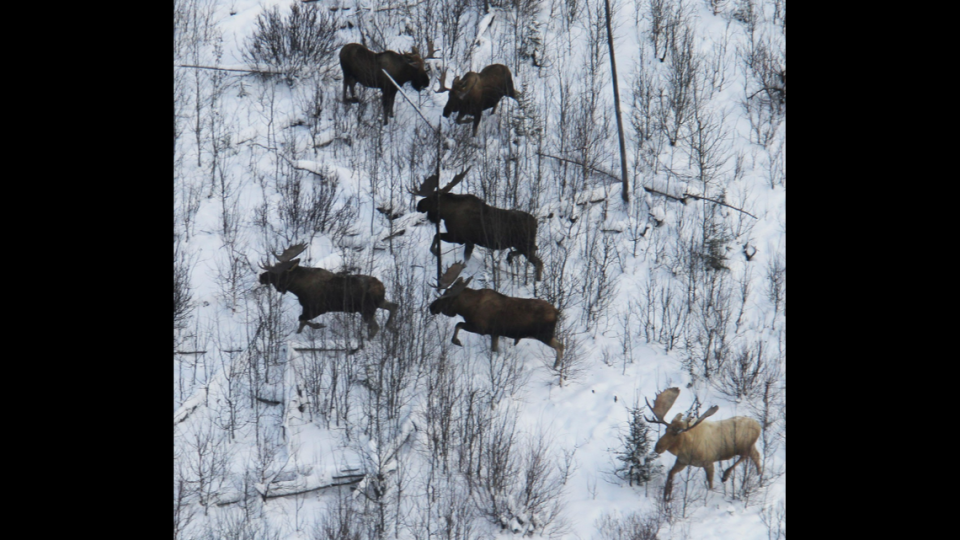‘Spirit animal’? Rare type of moose seen by team surveying interior Alaska from plane
A rare type of moose that is considered “sacred” by some was spotted by an aerial survey team flying over interior Alaska.
In a wilderness where moose tend to stick out like lumps of coal against winter snow, this moose was like a ghost, photos show.
However, it is not an albino, the Alaska Department of Fish & Game reported in a Jan. 13 Facebook post.
“While flying moose population surveys in interior Alaska this winter, ADF&G biologists spotted this rare, leucistic bull moose,” the department said.
“Leucism is a genetic mutation that causes a partial lack of pigment in the skin and hair (and feathers and scales in other animals) but not in the eye. This is not the same as albinism in which no melanin is present, and the eyes are pink.”

The exact location of the discovery was not revealed.
Alaska is home to as many as 200,000 moose, which grow to 1,600 pounds and 6 feet in height, the state reports. Their antlers can weigh as much as 80 pounds over a single summer, “adding a pound of bone and an inch a day.”
Folklore in some cultures considers leucistic and albino animals to be supernatural and even gifts from the gods.
The state’s Facebook post has gotten nearly 3,000 reactions and comments, including some who referred to it as a “spirit animal” that shouldn’t have been photographed. Others begged for GPS coordinates so they could see the animal.
“Most won’t hunt a white animal for superstition reasons. I think the native people also look at these as some kind of spiritual sign,” Matthew Kendall posted on the state’s Facebook page.
“He is almost invisible,” Nancy Doner wrote.
‘Army camouflage ice’? Odd frozen formations in Alaska marsh defy easy explanation
Fish seen regurgitating 8-legged creature on deck of fishing boat, NOAA says
‘Alien’ light beams seen along US-Canada border linked to extreme cold, experts say

